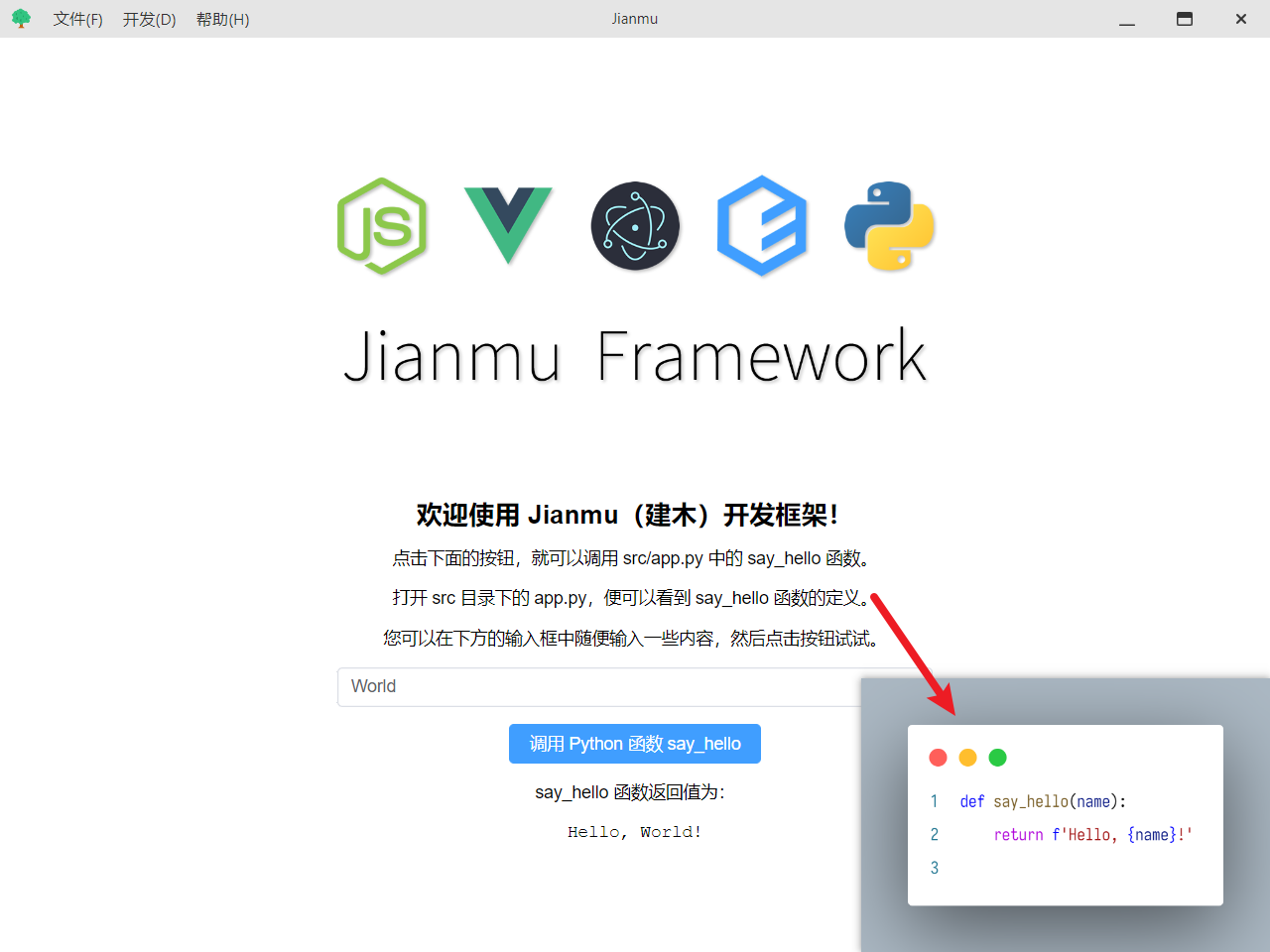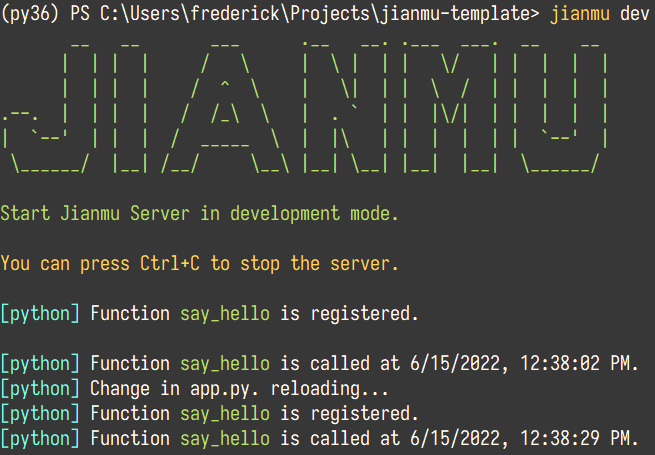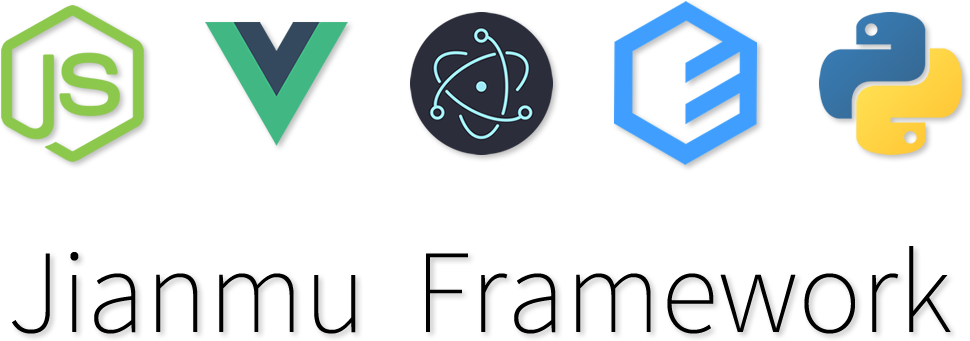# jianmu
**Repository Path**: frederick-wang/jianmu
## Basic Information
- **Project Name**: jianmu
- **Description**: A simple desktop app development framework combining Python, Vue.js, Element Plus and Electron.
- **Primary Language**: Python
- **License**: Apache-2.0
- **Default Branch**: main
- **Homepage**: None
- **GVP Project**: No
## Statistics
- **Stars**: 0
- **Forks**: 0
- **Created**: 2022-06-15
- **Last Updated**: 2023-02-14
## Categories & Tags
**Categories**: Uncategorized
**Tags**: None
## README
A simple desktop app development framework combining Python, Vue.js, Element Plus and Electron.





## Installation
### Python Version
We recommend using the latest version of Python. Jianmu supports Python 3.6 and newer.
### Install Jianmu
To install the [Jianmu package](https://pypi.org/project/Jianmu/), use the following command:
```sh
python -m pip install jianmu -U
```
Jianmu is now installed. After installation, you will have access to the `jianmu` binary in your command line. You can verify that it is properly installed by simply running `jianmu` command or `python -m jianmu`, which should present you with a help message listing all available commands.
You can check you have the right version with this command:
```sh
jianmu --version
```
## Usage
To create a new project, run:
```sh
jianmu create
```
To upgrade the template of your project, navigate to the project directory and run:
```sh
jianmu upgrade
```
To run your application in development mode, navigate to your project directory and run:
```sh
jianmu dev
```
To run your application in production mode, navigate to your project directory and run:
```sh
jianmu start
```
To build your application for a software release, navigate to your project directory and run:
```sh
jianmu build
```
To clean runtime temporary files in project directory, navigate to your project directory and run:
```sh
jianmu clean
```
## Screenshots










